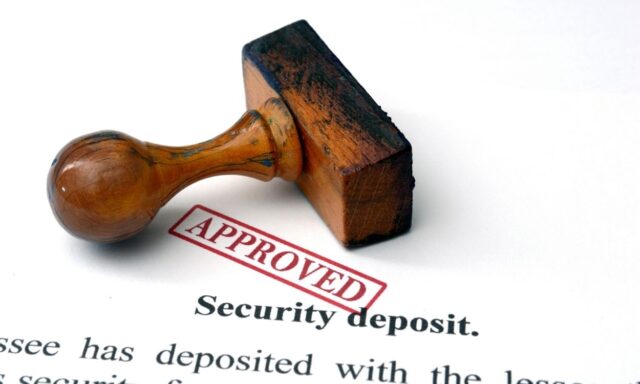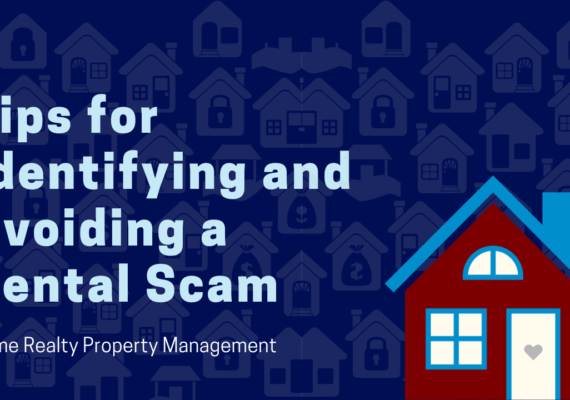Landlords in Texas are allowed to require tenants to pay security deposits at the start of the lease. Collecting a security deposit is essential because it acts as a form of protection. Security deposits can be used to do the following:
- Cover unpaid rent: One of the most common problems Texas landlords encounter is nonpayment of rent, which is a breach of the rental contract. In case tenants fail to pay their rent, Texas landlords are entitled to a portion of or the entire security deposit to cover the amount due.
- Cover the costs incurred by the landlord due to a breach of the lease: If the tenants failed to stay compliant with what was agreed upon in the lease, and the landlord incurred costs as a result of this breach, then the landlord can deduct any costs from the security deposit. For instance, if the tenants made any unauthorized alterations to the property, the landlord may use the security deposit to cover the cost of fixing those alterations.
- Cover other charges as outlined in the lease: The security deposit may be used to cover any charges stated in the lease agreement. For example, if the lease states that tenants are responsible for paying their utilities, but there are unpaid utilities upon move-out, the landlord may use the security deposit to cover the cost.
- Cover the costs of damage beyond normal wear and tear: The physical condition of the rental property is expected to deteriorate gradually due to normal day-to-day use. This is referred to as normal wear and tear. However, if the property is damaged due to a tenant’s negligence or abusive behavior, then the cost of repair should be charged to the erring renter. If tenants refuse to pay for the property damages that they have caused, landlords have the right to deduct the repair costs from the security deposit.
Texas Security Deposit Law: A Guide
Security Deposit Limit
Most states limit how much a landlord can charge a renter for a security deposit. In Texas, however, there is no maximum limit for the security deposit.
Nonrefundable Fees
In Texas, the entire security deposit must be returned to the tenant less any allowable deductions. While Texas landlords are allowed to charge nonrefundable fees, the security deposit should not be part of such fees. If Texas landlords charge nonrefundable fees, these fees must be clearly written in the lease agreement.
Storing a Tenants Deposit in Texas
Some states may have legal rules for how landlords should store their tenants’ security deposits. Under Texas law, landlords are not required to hold security deposits separate from other funds. However, landlords should keep accurate records and account for all security deposits. Moreover, Texas law does not mandate how and where security deposits should be held.
Written Notice After Security Deposit Receipt
While some states like Washington require a security deposit receipt, Texas landlords are not required by law to provide a receipt for the security deposit received from tenants.
Reasons to Withhold a Tenant’s Security Deposit in Texas
Under certain conditions, Texas landlords can keep all or a part of a renter’s security deposit.
Here are the allowable deductions in the state of Texas:
- Unpaid rent: While the security deposit can be used to cover unpaid rent, Texas tenants are not allowed to use the security deposit to pay for the last month of rent. If a Texas tenant refuses to make the final rent payment and demands the use of the security deposit for rent, the tenant may be held liable for three times the rent, plus any reasonable charges such as attorney’s fees.
- Costs of damage: In Texas, there is no legal limit to how much a landlord can charge for the cost of repairs on damages that are beyond normal wear and tear. However, the amount should be reasonable.
- Costs for breaking the lease: If a tenant breaches the lease agreement and pre-terminated the lease, the landlord may have a claim on the security deposit. However, if there is a replacement tenant satisfactory to the landlord, the landlord may only deduct the amount of the cancellation fee and any cost for securing a new tenant (such as marketing or tenant screening costs).
- Other charges listed in the lease: Other fees stated in the lease that are not paid for by the tenant may be charged on the security deposit.
Keep in mind, however, that in accordance with Texas renters’ rights concerning their security deposit, Texas landlords cannot keep or deduct from the security deposit to cover conditions that existed before the beginning of the tenancy.
Walk-Through Inspections
There is no statute under Texas law that requires a walk-through inspection. However, it is recommended to perform a walk-through inspection upon move-out to help check the property’s physical condition. Make sure to provide tenants with reasonable notice based on what was originally agreed upon in the lease.
Security Deposit Refund in Texas
Once the tenants move out of the property, Texas landlords are required to return any unused portion of the security deposit within 30 days, even in the case of a tenant’s eviction. Texas landlords are mandated to return the remaining security deposit by mail.
However, the landlord is not obligated to return the security deposit until the tenants provide a forwarding address. Note that the landlord cannot forfeit the security deposit just because the tenants failed to provide their forwarding address.
In Texas, landlords have the right to require the tenant to provide advance notice to terminate the lease as a condition for returning the security deposit. Such conditions must be clearly included in the rental agreement in underlined or bold fonts.
Change in Property Ownership
In Texas, if the rental property is sold to a new owner, the old landlord must transfer the security deposit to the new owner. The outgoing landlord is required to provide written notice to the tenant, stating the amount of the security deposit and the name and contact information of the new owner. The notice should also include a statement that a new owner has received the security deposit.
Bottom Line
If you want help dealing with security deposits, managing landlord-tenant relationships, or navigating landlord-tenant laws in Texas, reach out to the experts at Prime Realty Property Management. We’re a full-service property management company and we’d be happy to help you with any and every aspect of your rental property.















I was extremely pleased to discover this site. I wanted to thank you for your time just for this wonderful read!! I definitely enjoyed every bit of it and i also have you saved as a favorite to look at new stuff on your blog.